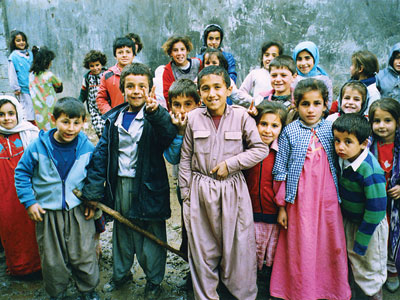This article was originally written for and published by Awat Newspaper.
The term stress had none of its contemporary connotations before the 1920s. It is a form of the Middle English destresse, derived via Old French from the Latin stringere, meaning “to draw tight.” It had long been in use in physics to refer to the internal distribution of a force exerted on a material body, resulting in strain. Nowadays stress is a word very commonly used in a biological and psychological sense to refer to a mental strain or a more medical definition, a harmful environmental agent that could cause illness.
Stress can be a very subjective illness where responses can differ greatly. Different people will respond to, cope with and handle stress very differently from one another therefore can be very hard to diagnose. Due to its diverse nature the treatment of stress can also different, from simple rest to medication of the symptoms. Stress can just be daily life struggles which cause constant worrying or more detrimental effects such as severe depression, pain, low blood sugar and memory loss. Symptoms of stress can be cognitive, emotional, physical, or behavioural.
Stress itself also comes in many different forms. Medically stress can be classified in several different categories including generalized anxiety disorder, obsessive-compulsive disorder (OCDC), panic disorder and post traumatic stress disorder (PTSD). In this article I will be focusing on PTSD in Kurdistan among young adults and children. PTSD is a severe anxiety disorder that can develop after exposure to any event that results in psychological trauma. Kurdistan is a region that is still recovering from decades of war, chemical attacks and civil conflict leaving behind a trail of an orphaned and traumatised generation.
I have previously written about mental health in Kurdistan and the dire effects it is having on our women and children, but especially our children. I was curious to see what types of mental disorders are prominent within the population in Kurdistan. Although the information is very scarce there has been some research regarding stress in the younger generation.
A study conducted by Ahmad Abdullbaghi et al, was part of a larger epidemiological study to estimate childhood mental health problems in South Kurdistan. School aged children from the general population were recruited between the ages of 5-18 years. The sample included 871 children in total consisting of children from the general population, the orphan system, a primary medical care centre (location unknown) and the only hospital in Duhok. Children were put through a series of questionnaires and interviews to screen for posttraumatic stress symptoms.
Overall, the results showed out of the 871 children 270 of them showed signs of stress diagnosis. That equates to 33.5% of children whom showed symptoms in correlation to that of PTSD. The number of children who showed symptoms was highest from the group taken from the primary medical care centre (location unknown) being 40.2%, in comparison to other groups who showed: the general population 32.2%, the orphan system 34.0% and the only hospital in Duhok 26.1%. The alarming number of young children, beginning at the age of 5, is the very tragic aftermath of years of devastation to the region which our children are still suffering from.
The study concludes that the high frequency of stress among the population is in line with their previous studies in Kurdistan, which showed similar results, indicating that the population in Kurdistan is living under very special conditions of chronic stress. The lack of psychiatric and physiological provision in the medical care system in Kurdistan in the years recovering from war in the region may explain the results shown.
An improved psychiatric and physiological input in the medical system in Kurdistan is needed for better care for patients and children who suffer from underlying physiological trauma, including anxiety disorders. The community in Kurdistan also needs to be educated on signs and symptoms of severe stress which may lead to disorders such as PSTD. Health care professionals who may not necessarily work in the psychological departments need to be trained to diagnose and help those who suffer from different types of stress disorders and refer them for proper treatment. More research needs to be done on the deeper problem of PTSD in Kurdistan to set a strong foundation to tackle the problem head on. While our children are young we must keep them healthy and happy so when they are older they have the mental strength to deal with adult life.

